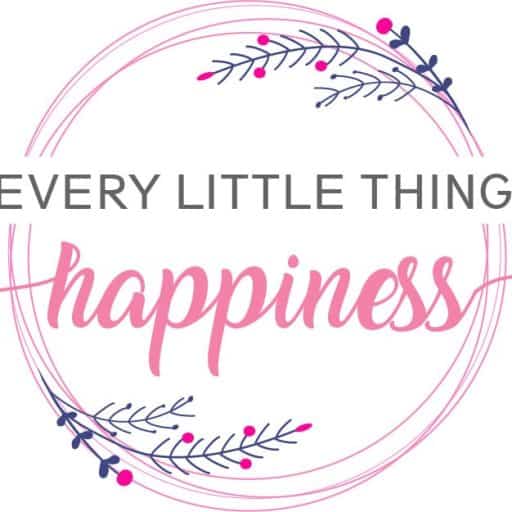When the atmosphere encourages learning, learning is inevitable. In the previous blog post, we were apprised about the Advantages of HomeSchooling. Now that you know the brilliance of this concept, let’s discover the way forward. There are many Techniques a parent can Follow while HomeSchooling. Read on to know 7 Types of HomeSchooling Techniques for Your Child.
Whether your child was about to begin school and never could see even the gates of the school due to the Pandemic or your child is already a Pre-schooler or is in the playgroup age, there is a home schooling way for everyone. Just like there are different cuisines most loved and preferred by you and your child, one of the homeschooling methods will definitely be most preferred by you both too.
Read below to know them in broad terms to give you the general idea without overloading you with many of their variations to give way to confusion. You can pick any method that best suits your preferences and work your way around, a method that resonates the most with your passion and your family.
7 Types of Home-Schooling Techniques for Your Child

1. Traditional Home-schooling
This is the one of the first kinds of Homeschooling approaches and is also known as School- at-Home approach. It is also the most used method where the educating material used is the one provided by school. Basically in this method, you follow the curriculum designed by a school but teach the same at home using your expertise or way of teaching. With this method, you can decide the curriculum you wish to follow and match up to the standards of the school while having the flexibility to do it the way you prefer.
2. Eclectic Home-schooling
If you want to mix and match curriculums and different approaches to suit the needs of your child, you can choose the Eclectic Homeschooling. Here there is no such thing as a perfect schedule or curriculum. You just go with the flow of your child interests and every day the curriculum can be different. Here your child has the liberty to choose what he wishes to learn that day or not learn at all. Based on the chosen subject or topic, you teach your child different concepts all related to the same topic one by one. You can ask the child to choose the topic one day in advance and gear yourself up with all information to teach it effectively. It doesn’t matter what level is the child on; the child may learn the concepts taught to 10th grader too if his interest lies in it without being pushed to learn by the parents.
3. Montessori
If you have two or more children who to be homeschooled, Montessori method works the best because this method relies on multi age groups. This method incorporates a full sensory experience and lets children use tools instead of toys. It makes the child practice more on life skills than pretend play. Example, letting children explore and help in Kitchen with real things rather than pretend play with a kitchen set. Although Montessori materials are available for high school students, most homeschoolers use the Montessori Method for younger children.
4. Waldorf:
The Waldorf philosophy (also called the Steiner education philosophy) has become a worldwide movement just like the Montessori Method. Quite similar to any Waldorf School, here the homeschooling approach is mainly concentrated on importance of educating the whole child- body, mind, and spirit and is divided into 3 stage learning. In the early year, the importance of teaching is more on arts and crafts, music and movement, and nature. Later in the next stage, children are taught to increase their imagination and manage their emotions. The next stage then focuses on older children learning to develop self-awareness and how to reason things out for themselves. The use of gadgets for learning is a total prohibition.
5. Unschooling:
Free from all methods or curriculums, unschooling gives complete freedom to the child to learn anything he or she desires. Unschooling teaches education through daily experiences. You intentionally use daily, real-life experiences as learning opportunities. For example, a simple trip to the Market may teach the child about lifecycle of a plant and how food comes; it can also teach how to do simple addition and may other various things enroute the market. There is no schedule, no syllabus, no grading. Having maximum freedom and flexibility, this method is both a boon and a bane if treated wrong. Following their curiosity, children learn the same way adults do by pursuing their interests. Just the way the child learnt how to talk without a book; this method believes that children can learn through experiences.
6. Multiple Intelligence Tapping
This method is based on the theory that says that “everybody differs in intelligence in different ways according to the different intelligences they possess”. In this method of Home schooling, you adapt to your child’s way of learning. What it means is that if your child prefers to listen to Audio then you read books, all the learning is then through the audio medium, if he prefers not to write, then the medium of reciprocating the knowledge learnt is through orals. Obviously science is learnt through hands on experience but say Math can be learnt through lacing beads if the child likes more of touch based learning instead of writing, vocals or audio. Basically the mode of learning is whatever the child prefers in parallel to any method of home schooling chosen by the parent.
7. Charlotte Mason Technique of Home-Schooling
If you are looking to educate the whole person and not just the mind, you may want to look up at the Charlotte Mason method of Homeschooling. The motto of this method is that Education is “An Atmosphere, A Discipline, A Life”. Here the child is encouraged to make their own relations with what they are learning and to draw their own connections between them rather than the parent trying to teach the children to connect the dots together to learn which is covered under the Atmosphere. The next emphasis is on creating good habits that are not just limited to hygiene or manners, they go beyond topics like effective focus and putting efforts, being smart working, and thinking positively. The development aimed is more holistic than just educational.

Now that you are clear on the methodologies of homeschooling and may even have a preference, the biggest question is that every parent faces before fully diving into it is
Will I be able to Home-School?
As a parent it may be difficult for you to spare time if you are working full time. Hence home-schooling is an option restricted to Stay-at-home or Work from Home parents. You are already homeschooling your child if you are taking your child out with you, communicating with your child and answering your child’s questions! You don’t have to be a trained teacher to home-school and there is no magic formula to get you through this, just like parenting. Making learning an enjoyable pursuit for yourself shows your kids how much it matters in life. Most importantly you learn things that probably you could not explore earlier in your life. Imagine the satisfaction it will bring to know that your child is solely taught by you?
It is important that you build your relationship with the child if you want to start home schooling. Remember how well you studied certain subjects because you loved the teacher or shared a great bond with the teacher. The same philosophy is applied here.
Don’t feel unskilled or unqualified. You are qualified to home school your children if you love to read to them, love to spend time with them, love to explore the world with them, love to see them learn new things and, most importantly, love them. Again, don’t doubt your ability!
The biggest enemy of homeschooling is guilt. Don’t let that ever ride on you. Don’t feel guilty, for true home-schooling is not made of perfect moments or learning experiences. It is totally an unplanned experience that can’t be put on schedule to be followed dot by dot. No matter which style or method you decide on, let homeschooling be a joy to both the child and the parent and not be a burden.
If you think your child is able to learn knowledge in different forms from you and apply it to make himself better at things, then your goal of homeschooling has been accomplished irrespective of the method chosen.
Content Contribution: Tripti Jain
Tripti is a freelance writer who loves to express everything on her mind. A mother to a 4-year-old, Tripti shares her positive parenting and sustainable journey on Instagram in hope that all parents are able to make a better world and a better planet for their children.











Thank you for your time on the post.
Nice post